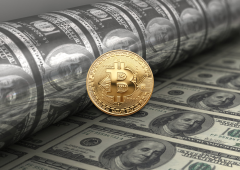Uniswap Launches Unichain to Boost DeFi and Cross-Chain Liquidity
12.02.2025 10:30 1 min. read Kosta Gushterov
Uniswap has officially launched Unichain, its new Ethereum layer-2 blockchain, aimed at optimizing decentralized finance (DeFi) transactions.
The launch, announced by Uniswap Labs, enables developers to begin deploying applications, launching tokens, and integrating stablecoins. Regular users can now fund wallets, trade tokens, and provide liquidity using Unichain’s infrastructure.
Designed to address Ethereum’s scalability issues, Unichain promises fast transaction speeds and lower fees while maintaining a high level of decentralization. The platform is also built to support cross-chain liquidity, allowing assets to move seamlessly between different networks. According to Uniswap Labs, these features will provide a more efficient and accessible environment for DeFi users.
Shortly after launch, leading US-based exchange Coinbase announced its support for Unichain through its Onramp service. This integration allows users to easily convert fiat to crypto and transfer USDC without fees, making it easier for participants to onboard into the ecosystem.
Uniswap Labs first introduced the concept of Unichain last month, emphasizing security and stability as key priorities before opening the mainnet to the public. As adoption grows, the platform is expected to play a significant role in expanding the DeFi landscape by offering a more seamless and cost-effective user experience.
-
1
Ripple Powers UAE’s First Tokenized Real Estate Project via XRPL
16.07.2025 21:00 2 min. read -
2
Cardano and Ethereum Lead in Developer Activity as GitHub Commits Surge
14.07.2025 12:00 1 min. read -
3
German State-Owned Development Bank Issues €100 Million Blockchain Bond
11.07.2025 7:00 2 min. read -
4
Tether Ends Support for Five Blockchains in Infrastructure Shift
12.07.2025 11:30 2 min. read -
5
BNB Chain Upgrades and Token Delistings Reshape Binance Ecosystem
16.07.2025 22:00 2 min. read
Wall Street Moves Onchain: Tokenized Finance Enters its Breakout Era
The tokenization of real-world assets (RWAs) has entered a new phase in 2025—no longer a concept, but a confirmed trajectory.
Vietnam Launches National Blockchain to Digitize Government and Citizen Services
Vietnam has officially launched NDAChain, a national blockchain infrastructure designed to underpin its digital transformation strategy.
Solana Plans 66% Block Upgrade to Boost Network Capacity
Solana developers have introduced a new proposal aimed at pushing the network’s performance even further.
Chainlink Partners With Westpac and Imperium to Tokenize Finance in Australia
Chainlink has announced a major institutional partnership with Westpac Institutional Bank and Imperium Markets as part of Project Acacia—a joint initiative involving the Reserve Bank of Australia and the Digital Finance Cooperative Research Centre (DFCRC).
-
1
Ripple Powers UAE’s First Tokenized Real Estate Project via XRPL
16.07.2025 21:00 2 min. read -
2
Cardano and Ethereum Lead in Developer Activity as GitHub Commits Surge
14.07.2025 12:00 1 min. read -
3
German State-Owned Development Bank Issues €100 Million Blockchain Bond
11.07.2025 7:00 2 min. read -
4
Tether Ends Support for Five Blockchains in Infrastructure Shift
12.07.2025 11:30 2 min. read -
5
BNB Chain Upgrades and Token Delistings Reshape Binance Ecosystem
16.07.2025 22:00 2 min. read


